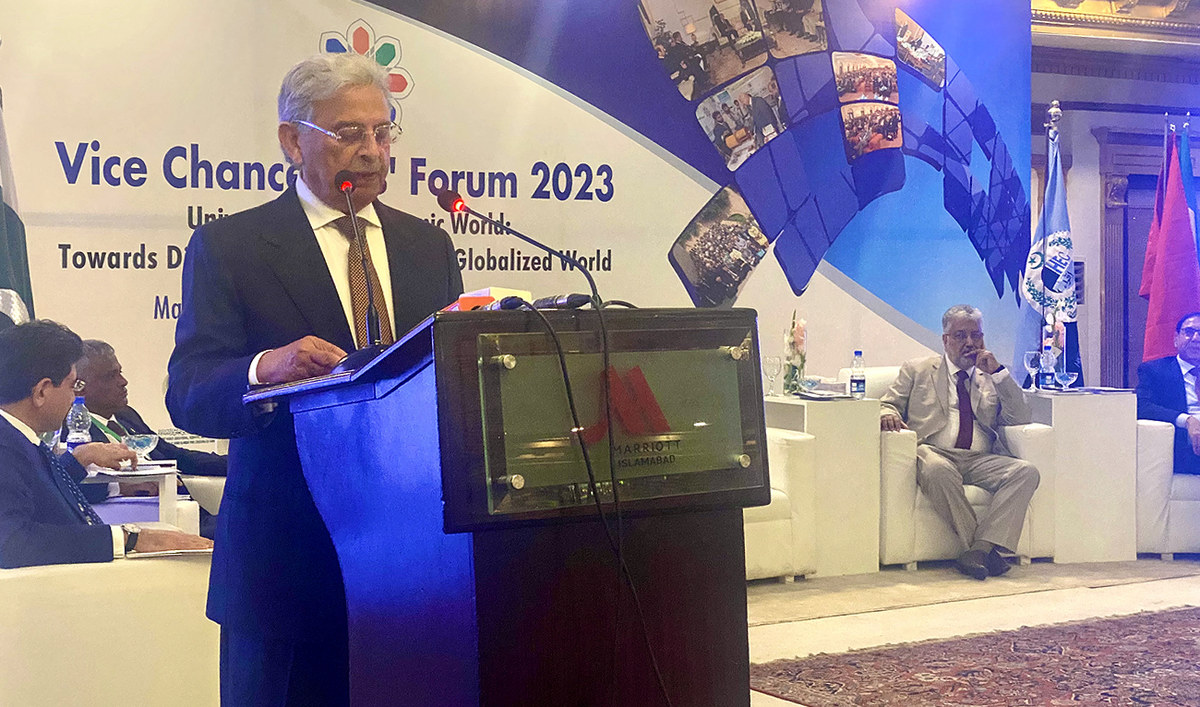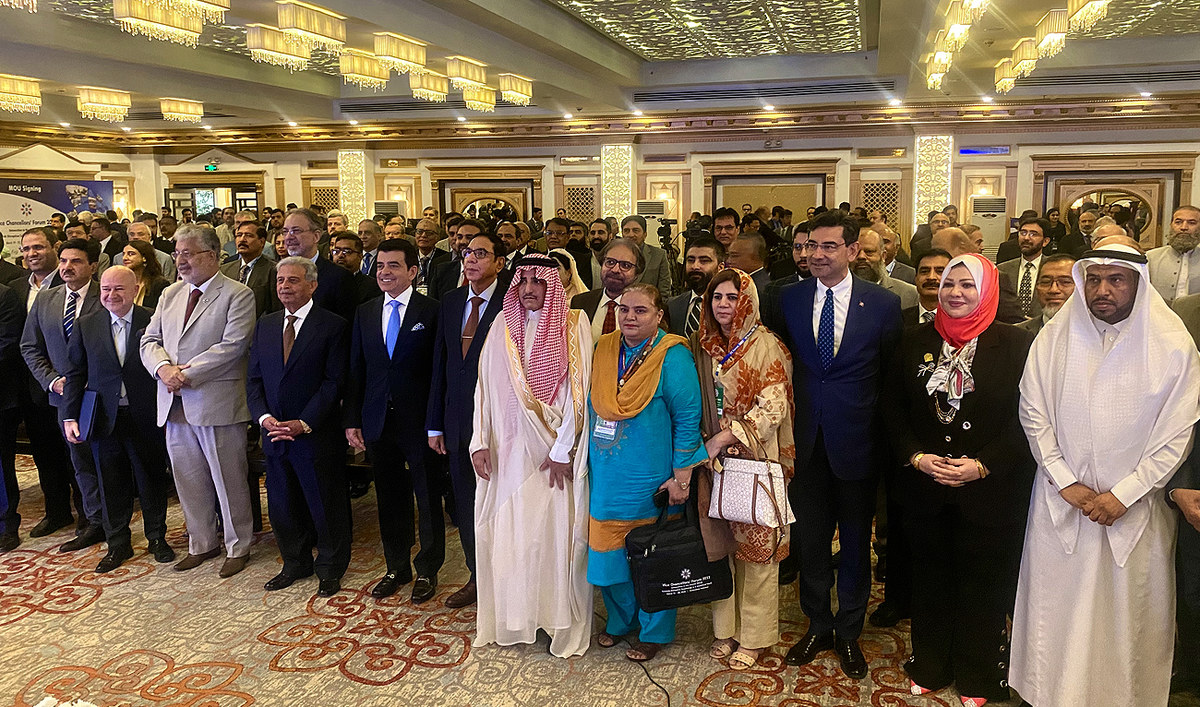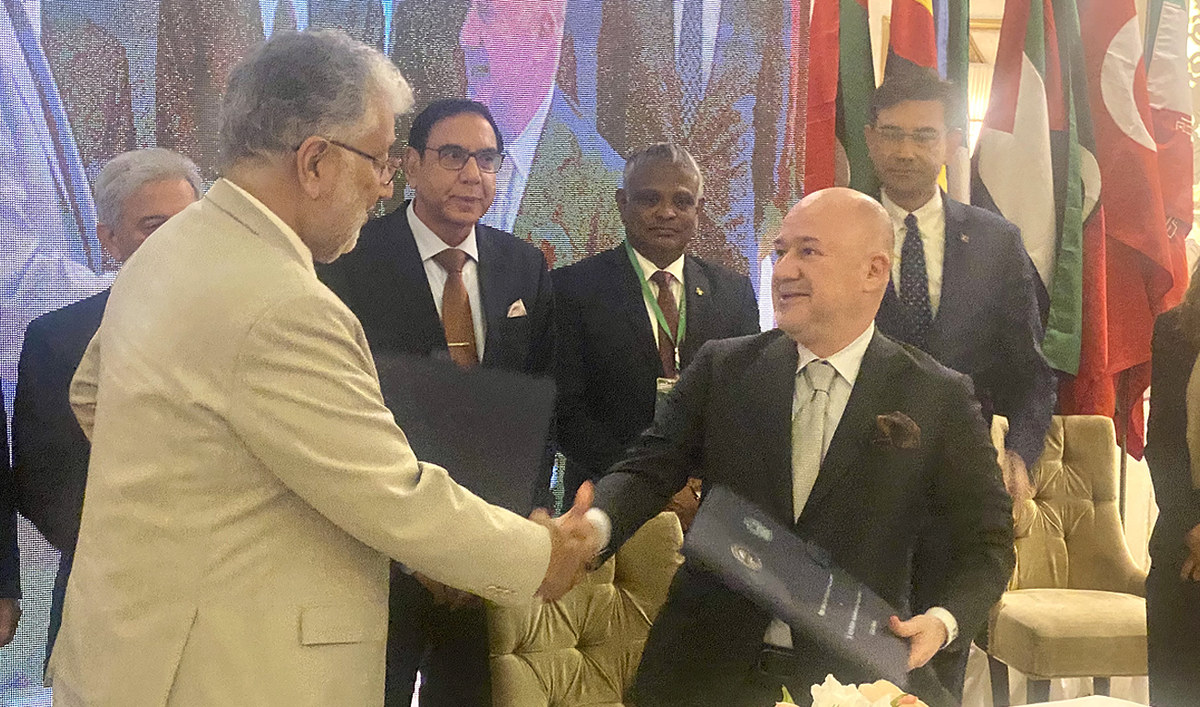ISLAMABAD: Pakistan’s education minister Rana Tanveer Hussain on Sunday stressed the need to develop a framework for mutual recognition of degrees among the Organization of Islamic Cooperation (OIC) countries to facilitate “greater movement of skilled manpower” among the Islamic world.
Hussain said this during a two-day Vice Chancellors’ (VC) Forum of Islamic countries in Pakistan’s capital, Islamabad. Over 200 vice chancellors, including 40 from the 20 OIC countries’ universities that are participating in the forum, attended the event.
The goal of the fifth edition of the forum is to share experiences, pool resources, foster collaborations, strengthen networks, and encourage dialogue on the future of higher education in the Islamic World.
The VC Forum is being jointly organized by the Higher Education Commission (HEC) Pakistan — the statutory education body in Pakistan — the Islamic World Educational, and Scientific and Cultural Organization (ICESCO), Pakistani Ministry of Federal Education and Professional Training, COMSATS University Islamabad (CUI), and the British Council Pakistan.
“There is a need to develop a framework for mutual recognition of degrees among OIC member countries, which would facilitate greater movement of skilled manpower among them and increase collaborative research,” Hussain said at the event.
He stressed on the need to develop the youth’s skills, adding that universities needed to respond more effectively to the rapidly developing realities of professional development.
“All Muslim countries need to pool their resources and expertise to benefit the entire Muslim world,” the minister added.

Pakistan’s Federal Minister for Education, Rana Tanveer Hussain, addresses participants of the VC's Forum of Islamic countries in Islamabad, Pakistan on March 19, 2023. (AN Photo)
In his video message to the audience, Pakistan’s President Dr. Arif Alvi urged the forum to chalk out a strategy to promote the practice of adopting modern education and technology among the Muslim youth.
“The Muslims were slow to adapt to technological advancements and this needed to change,” he said, adding that in the last 10 years, sectors focusing on natural resources were overtaken by technological companies such as Amazon and Google.
These companies, he said, represented intellectual capital and pointed toward the need for greater access to online education.
Dr. Salim M. Al-Malik, director general of ICESCO, said development of robotics would make 97 million jobs obsolete and in the next 10 years, 375 million people would have to switch jobs, causing immense disruption worldwide and hence increase the digital divide.
“There is a great need to recreate the glorious Islamic heritage in science and ICSESCO would create 100 science researchers in top universities of the member countries by 2025,” he added.
Dr. Mukhtar Ahmed, the HEC’s chair, said this forum posed an immense challenge for academia to rethink its role beyond conferring degrees on developing critical thinkers who could adapt and respond to fast-changing global trends with agility and creating lifelong learners with relevant skill sets.
“This forum will help higher education institutions in the Islamic world keep pace with rapid developments in science and technology,” he said. Ahmed hoped that at the end of the two-day activities of the Forum, participants would come up with tangible initiatives for enhanced collaboration and would help bring excellence in higher education systems.

Vice chancellors from OIC member states pose for a group photo during the VC's Forum of Islamic countries in Islamabad, Pakistan on March 19, 2023. (AN Photo)
Speaking to Arab News, Professor Dr. Alyaa Ali Al-Attar, president of the Northern Technical University in Iraq, expressed her delight in attending the conference. She said it had provided a valuable opportunity to engage with leading academics from the Islamic world.
“The conference has provided us an opportunity to interact with top academicians from the Islamic world and exchange ideas for the advancement of higher education in the Muslim world,” she told Arab News.
She said the conference provided a platform for exploring various avenues of future collaboration among the participating higher education institutions.
“We are looking forward to discussing different ways and means of future collaborations between different higher education institutions whose heads are participating in this conference,” she added.
Maria Rehman, the country director of the British Council Pakistan, said there was an immense need to bridge the gap between universities and the industry to improve the quality of skilled education.
“There is a need of reforming the educational system, building partnerships for increasing access to quality learning, which is quite a challenge,” she added.

The officials of Pakistani Higher Education Commission and World Business Angels Investment Forum sign MOU for cooperation in higher education sectors in Islamabad, Pakistan on March 19, 2023. (AN Photo)
















